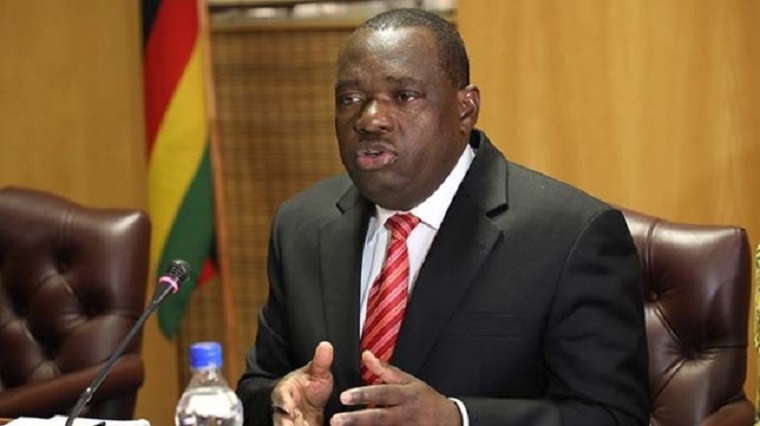 This week saw the beginning of a crucial milestone in Zimbabwe’s re-engagement with the world. After 17 years without official political dialogue, the Zimbabwean government in which I serve as minister of foreign affairs and international trade and the European Union will begin formal engagement at ministerial level.
This week saw the beginning of a crucial milestone in Zimbabwe’s re-engagement with the world. After 17 years without official political dialogue, the Zimbabwean government in which I serve as minister of foreign affairs and international trade and the European Union will begin formal engagement at ministerial level.
The crucial change that has led to the thawing of relations was the election of a new government in July 2018.
Under president Emmerson Mnangagwa, Zimbabwe is making great strides to re-connect with the international community after nearly two decades of self-imposed isolation.
The road to this process has begun, first, at home. That election – with the highest registered voter turnout in Zimbabwe’s history – was described the EU Electoral Observation Mission as “competitive, the campaign was largely peaceful” and “overall, political freedoms during the campaign, including freedom of movement, assembly and speech, were respected”.
Sadly, the day after the vote post-election occurred on the streets of our capital Harare.
In the wake of this serious infringement, the president established an internationally-led commission of inquiry – the Motlanthe Commission – with full powers to investigate, take evidence and draw conclusions as to the facts, the reasons and the necessary remedy.
Hearings were held both in our capital city around the country, and all proceedings were in public – and televised – to ensure freedom of expression and full accountability. Nothing like this has ever happened before in our nation’s history.
We have committed to, and are already well into the process of, implementing – in full – the recommendations of both the EU observer mission and the Motlanthe Commission.
Indeed, one example of such action was completed last week: after many months of public consultation and parliamentary debate and scrutiny, the president signed into law the MOPA Act that repeals and replaces the highly-criticised Mugabe-area Public Order and Security Act – legislation that infringed on rights and freedoms of association.
There is, of course, a long way to go in our quest to build a new Zimbabwe, with many more laws left to repeal and replace, and many more reforms to enact – both societal and economic. And we have as much work to do in changing the law as we do in implementing it.
Reforming the manner in which the state delivers – from the police service to defence forces and from social services to schools – is as, if not more, important to the general public than what is written down in legislation.
EU sanctions mostly lifted
Yet we are pleased that the EU itself appears to have shifted position to meet Zimbabwe halfway.
Under the previous Zimbabwean administration, the country was subject to a range of economic sanctions of which, today, all but two have been lifted.
Whilst EU sanctions did not precisely preclude investment from all or any European businesses in Zimbabwe – as direct and prescriptive as they were stated to be – sanctions always have a broad and deleterious effect on any nation. Indeed, it must be said that this is their very point: to dissuade others from engagement. They are levied to increase risk.
Fortunately, that is now substantially dissipated by the start of formal ministerial-level dialogue. And there are so many opportunities for a new era of EU-Zimbabwe relations.
As with many countries in Africa, Zimbabwe has a surfeit of natural resources – from mining and extractive opportunities to fertile land for mass agricultural production.
Yet in our continent, Zimbabwe is exceptional in its level of literacy, educational standards, infrastructure and service industry experience. For advanced European markets, there are few other partners in Africa who can offer both such complementary and parallel comparison.
There is, indeed, already in place an interim EU Economic Partnership Agreement (EPA) – ratified by the European Parliament in 2013 – with eastern and southern African countries that includes Zimbabwe.
Yet with strict rules on exports and the steep protectionist policies of the previous administration, little was done to take advantage of the opportunities that the interim EPA makes possible.
Fortunately, the new Zimbabwean government has changed laws on foreign ownership – allowing for majority stakes in business sectors across the board for European investors, should they seek them; land reforms opens up the opportunity for ownership of 99-year fully tradable farm leases for European agribusinesses; and our media market is being transformed – with new broadcast, print and spectrum licences.
We are fully aware, of course, that the normalisation of relations between Zimbabwe and the EU will take time.
No-one can expect immediate miracles from what is – after all – only the beginning of the first ministerial level dialogue for nearly two decades.
But we have hope, and we enter these joint discussions with open minds and the intention of friendly partnership. Our new Zimbabwe is committed to opening up our nation, economy and society to the world.
We are convinced the EU shares this goal. Let us work together to achieve it.
By Sibusiso Moyo – Minister of Foreign Affairs and International Trade for the Republic of Zimbabwe.
(111 VIEWS)


